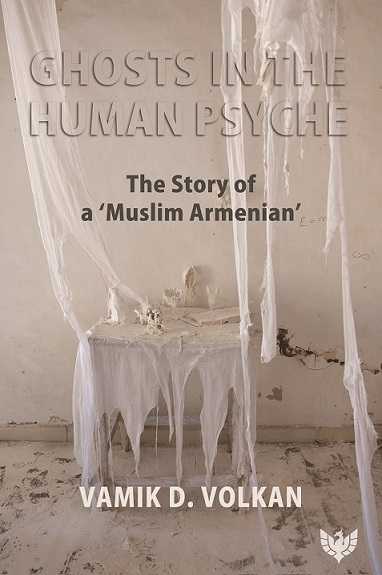Ghosts in the Human Psyche: The Story of a “Muslim Armenian”

Book Details
- Publisher : Karnac Books
- Published : 2019
- Cover : Paperback
- Pages : 170
- Category :
Individual Psychotherapy - Catalogue No : 93974
- ISBN 13 : 9781912691067
- ISBN 10 : 9781912691
Reviews and Endorsements
Vamık Volkan, a pioneering and prolific contributor to the psychoanalytic study of large-group psychology, offers us yet another gem here. His “Ghosts in the Human Psyche” delineates, in a methodical and step-by-step fashion, the psychoanalytic treatment of a “Muslim Armenian” in Turkey, which he supervised, on a regular basis, from his home base in the United States. Skillfully synthesizing history, politics, cultural narratives, and contemporary object relations theory, Volkan sheds light on how such interdisciplinary and comprehensive understanding of an individual deepens not only the psychoanalytic treatment but also our grasp of the human condition at large.
Salman Akhtar, Professor of Psychiatry, Jefferson Medical College; Supervising and Training Analyst, Psychoanalytic Center of Philadelphia
In recent years, Vamık Volkan has given us a series of wonderful and all too rare gifts: breathtakingly clear, moving, and honest accounts of extended psychoanalytic treatments. This book is another gem in that sequence. But, unlike almost anyone else writing today, Volkan also shows us – again in clear and completely convincing ways – how the intimate life of one person is profoundly intertwined with the deep currents of history, and how that shows itself in the analysis. That he does this, with palpable respect, in the role of supervisor reminds us that supervision is a second look, so to speak, a perspective that might help the analytic pair grasp the larger context, often a context of large- group identity and historical trauma, sometimes for both parties. This gift to us is also a gift to the patient, his analyst, and to psychoanalysis itself.
M. Gerard Fromm, PhD, President, International Dialogue Initiative; Distinguished Faculty, Erikson Institute, Austen Riggs Center
In this new psychoanalytic era, where the impact of historical events on the development of the personality is now recognised, Dr Vamık Volkan describes his observations on the impact of cultural elements, political movements and their mental images on the psyche of individuals. He does this through a candid and detailed description of a case study from the perspective of an analytic supervisor. The analytic journey described in the book is profound, clear, and authentic. Not only trainees but experienced psychodynamic clinicians as well will find this book a pleasurable learning experience.
Ilany Kogan, Training and Supervising Analyst at the Israel Psychoanalytic Society
This very accessible case study is written by a Nobel prize nominated Turkish/American psychoanalyst. It illustrates his contention (and that of much of the therapeutic world today) that psychoanalytical therapists must take into account the historical, political and social background of their patients. […] This extremely readable book could be used in diversity training, as it traces the influence of group identity on the psychological state of a patient (his therapist and her supervisor) and on the trajectory of their work.
Val Simanowitz, MBACP Senior Accredited Counsellor and Supervisor; Ex-trainer in the May edition of ‘Therapy Today
‘This remarkable book shows in one illustration how an analysis containing an awareness of poverty and a traumatic history demonstrates how the transgenerational manifests itself in the unconscious of a single patient. … This book is an unusual study of one entire case of a patient, supervised by Vamik Volkan. It beautifully demonstrates the importance of recognizing the forces exerted on and within an individual’s unconscious. … [an] interesting and relevant book …’
David Morgan, British Journal of Psychotherapy 37,2 (2021) 327–349
‘Volkan clearly and honestly demonstrates how large-group identities and functioning, as well as external events, are relevant to psychoanalysis as a theory, a treatment, and an organization, and how the impact of these can contribute to determining an individual’s internal life. […] strongly recommended for psychotherapists and psychoanalysts who are interested in a close look at an analytic process that reveals the strong influence of historical and cultural events and their pervasive impact on the human psyche. This is also an especially timely book in this new era of psychoanalysis in which the external world’s influence on psychodynamics—including in such areas as gender, race, social class, ethnicity, and culture—has risen to the forefront of our thinking.’
Sureyya Iscan, The Psychoanalytic Quarterly Vol. 90 No. 4 (2021)

